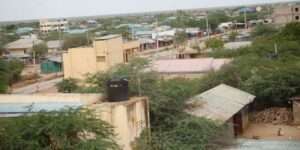Many people imagine Tana River County as a dry, marginalised and less developed area.
The county’s history includes some of the worst cases of ethnic violence and massacres that claimed the lives of hundreds and a record of terror attacks that undermined the tourism sector.
However, over the years, this has changed, with some of the towns coming up as tourist attractions and destinations joining a list that includes Mombasa, Diani, Malindi, Lamu, Watamu, and Tsavo in the Coast region.
Visitors come to learn about the Hola Massacre and the history of the making of the national anthem and to seek investment opportunities, among other reasons.

For instance, in Hola town, greater numbers of visitors have attracted investors in the hospitality industry, who are setting up facilities to meet the demand.
From zero hotels in 2016, Hola now boasts three hotels providing four-star services with exquisite rooms.
Owners say demand for such rooms, places to relax and top-of-class meals, and conference halls drove them to invest in the area.
“We never used to have international guests here. Even a few senior national government officers would make a technical visit and hop out, since the only available places to rest were lodgings with three-by-six beds,” says Alice Mayian, a public relations consultant.
Due to competition, each hotel is coming up with unique services to woo visitors to the town.And this has in turn changed the face of the once deserted Hola, the county’s headquarters.
Unlike older hotels that were characterised by dusty rooms, faded towels, poor-quality food, coloured water and a noisy environment, new ones have invested in modern interior design, quality, spacious rooms and qualified chefs and established their hotels in exclusive places.
For instance, at Tana Grand Hotel and Spa, Manager Mercy Karhayu says they provide spacious rooms with air conditioners, five-star meals and free Wi-Fi.
“We receive more than 300 guests a month on full board and more than 600 clients regardless of the season since the majority are in
Hola to find business opportunities and also on official duties,” she says.The clients, she says, demand quality services and are precise with their expectations, which they expect to be met without excuses.
However, she notes that some of the clients have very high expectations and tend to compare the local growing industry with five-star facilities in Malindi and Watamu.
“We are on our way there. We still need a little time to fine-tune things. We are a fast-growing enterprise and there is no doubt we will be able to meet their expectations in the next three years or so,” she says.
At Zuri Hotel, General Manager Bildad Masha says clients appreciate a serene environment with rooms that are well conditioned to allow indoor work.
Some of the clients, he says, are keen on room designs and furniture and appreciate space.
“We have strived to create the environment based on their opinions after visits and though we may not be where they wish we can be in other services, there is no doubt we provide the best accommodation in the North Coast,” he says.
Zuri receives more than 200 guests every week on full board, with most of the clients visiting on vacation or researchers and scholars from various parts of the world.
But Mr Masha notes that some of the local guests have high expectations, which the hotel hopes to meet in the near future.
Some of the guests insist on extra security during their stay for the fear that an attack may occur, he said.
“Our past as a county still traumatises guests who are visiting for the first time. The ugly story about Tana River County is gradually changing and may take some time before it fades away,” he says.
With rising investment in the hotel industry in Hola and Tana Delta, the county administration is working to ensure the tourism industry also picks up.
Trade and Tourism Executive Yahya Ali says his department has partnered with other agencies to ensure that tourism sites are mapped, camps developed and more hotels built along the beach line, he says.
“There is a lot to see in Tana River County, and a lot of space that requires investment along our virgin beach. We can only seek interested partners to join us and grab the investment opportunities,” he says.
Mr Ali notes that in partnership with the Kenya Wildlife Service, the administration has identified wildlife corridors and will be investing in tour vans to facilitate movement to and from attraction sites.
He also encourages institutions to visit and carry out research in the local primate reserves and botanical sites.
“We are investing in more botanical sites and hiring more trained security to assure our guests safer movement into the sites,” he says.
Unlike in the past seven years, towns in Tana River County are no doubt experiencing tremendous growth and a transformation in their image.
The latest development is phasing out casual hotels and causing them to close down or upgrade their services and facilities.
Various travel companies have been mapping Tana River County as a tourist destination, marketing such things as the River Tana, Kora
National Reserve (also known as the Last Wilderness), the Tana Primate Reserve and the Hippo Festival in Kipini.
Credit: Source link